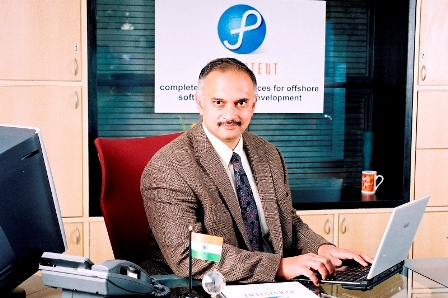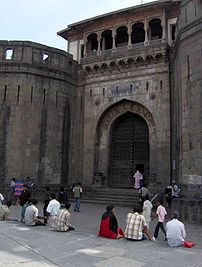This article is cross-posted from Amit Paranjape‘s blog.
I have always wondered about the parallels between Silicon Valley and Pune. Some might call this farfetched, but there are some really interesting and some coincidental similarities. Pune (as does any other Indian City) has a long way to go to even get closer, but that should not stop us from brainstorming on leveraging these similarities as building blocks, and strive towards emulating the leader. Silicon Valley is unique. Maybe one day, we can indeed see a vibrant Pune Technology Startup Ecosystem, thriving and prospering – on the lines of the Great Technology Entrepreneurship Capital of the World!
I started this self-brainstorming exercise by simply listing those Pune characteristics that parallel Silicon Valley (The degrees of similarities might vary …):
· Good quality of life (Compared to other Indian Metros).
· Temperate Weather.
· Technology Entrepreneurship Culture.
· Fledgling Startup Ecosystem.
· Education Hub:
o Many Good Colleges
o Leading Research Institutes
· Magnet for people from all over India/World:
o Pune has the highest number of foreign students (amongst Indian cities)
o Large number of foreign expats, and visiting researchers
o Recently, Pune has also benefited from the ‘Reverse Brain Drain’: Many highly qualified professionals and successful entrepreneurs (of Indian origin) from the US/Silicon Valley have moved back to Pune.
· Proximity to a Financial Capital.
· Large IT talent pool (Thanks to the many IT Outsourcing Companies).
· Leading ‘Green’ Technology Hub in India. (Headquarters of companies like Praj and Suzlon).
· Hub of Hi-tech manufacturing (Note: San Francisco Bay Area has quite a few high-end manufacturing companies as well).
And some coincidental ones …
· Leading Wine Producing Region in India.
· Developing into a key hub for specialty fruits, vegetables and Flori-culture.
· Open (and tolerant) culture.
Some of the obvious things that are lacking in Pune include – Infrastructure and Sustainable Development. The other ones include greater focus on pure research, and venture funding. [I will discuss these and more in further detail in following articles in this series.]
As I was continuing with this brainstorming and gap-analysis, I stumbled upon a great article written by the well-known Silicon Valley Venture Capitalist and Essayist, Paul Graham on ‘How To Be Silicon Valley’, in May 2006. He describes the key characteristics of the San Francisco Bay Area that led to the development of this amazing ecosystem over the past few decades. He also explores how similar Ecosystem Development could happen in other cities/towns anywhere in the world.
In my article, I make an attempt to use the key characteristics identified by Paul Graham, and try to map them to Pune. I believe that Pune is amongst the best places in India where a Silicon Valley like Ecosystem can take shape. Obviously, there are many challenges. I am not going to use sobriquets such as ‘Pune – The Silicon Valley of India’. Silicon Valley is unique – there can be only one.
I am also not doing a comparison (either/or) between different Indian cities here. Many writers routinely refer to Bangalore as the Silicon Valley of India. While to me, Bangalore is definitely not there at this point, it might very well be on the right track. To me, if places like Bangalore, Pune and others introspect and strive for the key characteristics that are described by Paul Graham, then all of them have a shot (tough, it might be!) at creating Silicon Valley like Ecosystems someday.
Note – I recommend that you do read Paul Graham’s article: “How To Be Silicon Valley”, before reading further. This will enable you to better relate to my observations below.
I am going to follow a format, similar to that used by Paul Graham. Listed below are the key characteristics and how Pune fares with respect to these.
Presence of Rich People who are not Bureaucrats
Paul Graham argues that a technology ecosystem needs rich people who can take risks, and invest the necessary seed capital. These investors shouldn’t be purely financial investors who don’t understand the domain that they are investing in. Nor should they be bureaucrats who simply evaluate short and medium term financial returns and are risk averse.
Paul Graham describes the example of how the money made on the risks taken in the 1980s (e.g. Sun Microsystems) was then re-invested again in the 1990s (e.g. Google, Amazon) and now being re-invested again. Essentially, startups create startups – this how this ecosystem starts and grows.
Does Pune have rich people, who are technocrats? The answer is yes. Maybe nowhere enough, but the successful technology entrepreneurs of the 1980s and 1990s have built up some good reserves and have started looking for interesting technology ideas to fund.
Not Just Buildings
Large buildings and nice campuses don’t make the Silicon Valley! The massive new IT Parks we see today in many Indian cities, don’t equate to Silicon Valley. We need the DNA of a startup that was founded here and grew.
Unfortunately, Pune doesn’t have many IT firms that became very big (like Infosys – though one could argue that Infosys in fact started in Pune, and moved on…). However, there are a few good examples of non-IT technology companies (Manufacturing, Industrial Automation, Green Energy, etc.) that made it big.
Universities & Research Institutions
Pune has a strong education culture and some excellent engineering and science & technology colleges, including the 2nd oldest engineering college in India. A new Indian Institute of Science Campus is also being planned. Distance wise one can argue that IIT Bombay is less than 3 hours (150 km) from Pune.
In addition to the universities, Pune has many leading research institutions in a variety of technology areas – National Chemical Laboratory, Institute of Virology, Indian Meteorological Office, Inter-University Center for Astronomy & Astro-Physics, Agricultural Research Institute, Various Defense Research Organizations, etc.
Personality
Paul Graham talks about a city/town having a ‘personality’. He further states that you don’t build such a personality – you let it grow. I believe that Pune has grown a strong personality over the past many decades. In fact, this is one of the attributes that Pune is quite famous for. A ‘Punekar’ (resident of Pune) can be identified by many interesting traits!
Pune has a personality of a small city/town; a personality of knowledge & learning; a personality of creativity (not just in technology, but in other areas such as arts and music); a personality of a distinctive life-style; a personality of tolerance & openness to new ideas. Historically, it has embraced and assimilated people from different parts of India (and the world).
And while the new Pune is morphing into a cookie-cutter solution of suburban development seen in other metros, the old – new Pune combination still maintains a distinct identity.
Nerds
According to Paul Graham, ‘Nerds’ constitute one of the most critical building blocks of such an ecosystem. You can call them anything – But Pune is increasingly a preferred destination for many techies (or nerds, or whatever you want to call them!). Historically, Pune has always been a center of attraction for the learned – not only in technology areas, but in other areas such as History, Sociology, Arts, Music and Languages.
Many of these people find Mumbai and other Metros to be too big, too fast, and too glamorous. Pune is compact, liberal and relatively quiet in comparison to most Indian cities. These nerds don’t mind paying a lot more to live in such a place with it’s unique identity (see earlier section). Quality of life is important for them. Note – Pune real estate is quite expensive, and the overall cost of living is amongst the highest in India.
Youth
Given Pune’s strong education ecosystem, Pune is a ‘young’ city. It is vibrant with fresh energy and drive. Culturally, it is less conservative/more liberal – whichever way you want to look at it. There are also quite a few people here who are ‘young at heart’.
Time
Even after having all the right mix of the above key characteristics, you need to provide ‘Time’ for a Silicon Valley to be built. While Pune has many of the desirable ingredients, it still needs more time. And it is critical that these characteristics don’t degrade/disintegrate over that time period. I will discuss this further in future articles in this series.
Competing with the ‘Original Silicon Valley’
Paul Graham’s last point relates to competing with the ‘original Silicon Valley’. Any new challenger will definitely face competition from the original one!
I do think that there is room for more challengers. Speaking about Pune/India, we have an advantage of having more generalists (engineers who are more application oriented that theory oriented; and can quickly span interdisciplinary boundaries). The costs in India have risen significantly this decade, but still remain low compared to the west. Thus, if planned and used correctly, the same capital can stretch longer here. Pune and India have a large and growing young population. Many innovative ideas are driven by young people – both as innovators, as well as consumers. It is here where India in general and Pune in particular has a strong credential.
In future articles in this series, I will explore specific steps that I think Pune needs to take towards its goal of emulating a Silicon Valley like technology ecosystem.
Please provide your feedback, other ideas and comments on this article. I will try to incorporate these in the future articles in this series.
This is a very important topic for all people interested in and/or working in the technology area in Pune!



![Reblog this post [with Zemanta]](http://img.zemanta.com/reblog_e.png?x-id=b262a73f-c162-4ead-890c-09e6009846bb)